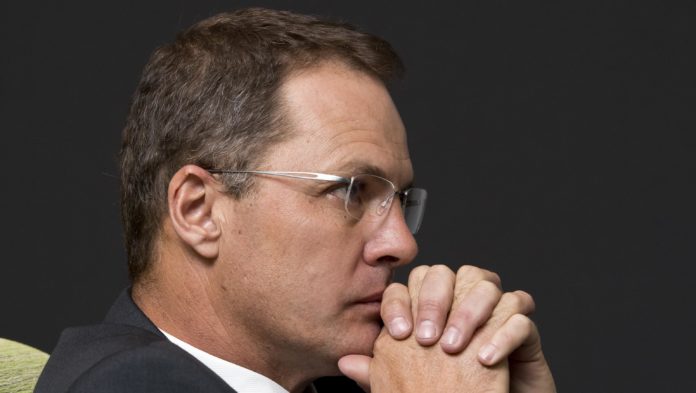
DRDGOLD CEO Niël Pretorius has launched a damning attack on the South African government describing it as “a threat to the economy and the quality of life of ordinary South Africans”.
He added that “certain elements within the ruling party” are trying to derail the measures announced last year by President Cyril Ramaphosa to decentralise the country’s power supply through greater involvement by the private sector.
In his report on DRDGold’s interim results for the six months to end-December, Pretorius said “the State is no longer just a source of drag on the economy – it is in consistent default of its constitutional mandate and has now become a threat to the economy and the quality of life of ordinary South Africans”.
Pretorius cited the impact on business from the collapse of both Eskom and Transnet as the main reasons, but he also highlighted the social knock-on from the implosion at Transnet which has “placed commuters at the mercy of the mini-bus industry”.
He described the mini-bus industry as “a poorly regulated industry run by shadowy figures who protect their monopoly over their commuter routes with violence and intimidation.
“Commuters relying on public transport are both dependent upon and defenceless against these cartels. The State is either unable or unwilling to regulate this industry and is, in any event, unable to provide an alternative”.
Pretorius’ hard line attack is a marked change from his previous comments which highlighted the shortcomings of the ANC government as they affected business but viewed them as manageable.
“In the past we have considered the effect of poor political governance on our risk profile as amounting to not much more than regulatory vagueness.”
He pointed out that while the government had taken some steps to improve the situation – such as the increase on the threshold on private power generation to 100MW – it seems there is internal dissention within the ANC which is holding this up.
“Certain elements within the ruling party – desperate to cling to the state’s monopoly on electricity supply – are frustrating efforts to decentralise and private power generation.
“Very little progress has been made to transition to reliable, renewable power for no reason other than the fact that the requisite licences are simply not being issued at the requisite rate”.
‘Systematic implosion’
Pretorius also highlighted the impact on DRDGold’s business of “the systematic implosion of local government services – in this case Johannesburg City Power. Its inability to maintain electricity supply services and slow turnaround in fixing breakdowns have forced us to abandon the City Power supply lines to a set of pumps at City Deep than deliver up to one third of Ergo’s volume throughput”.
Instead, DRDGold has built an alternative power line to connect directly to an Eskom sub-station where the business is “only” subject to Eskom’s load shedding agreements.
In response, DRDGold is setting up its own solar power plant and hopes to have the first phase of 20MW up and running by end-June.
Despite all this DRDGold increased headline earnings per share to 62.3 South African cents (six months to end-December 2021 – 58c) and has maintained the interim dividend at 20c a share.
Pretorius remains optimistic that the private sector can deal with this situation by stepping into the “state vacuum” and creating “an environment in which business can flourish and South Africans can build the best life”.










